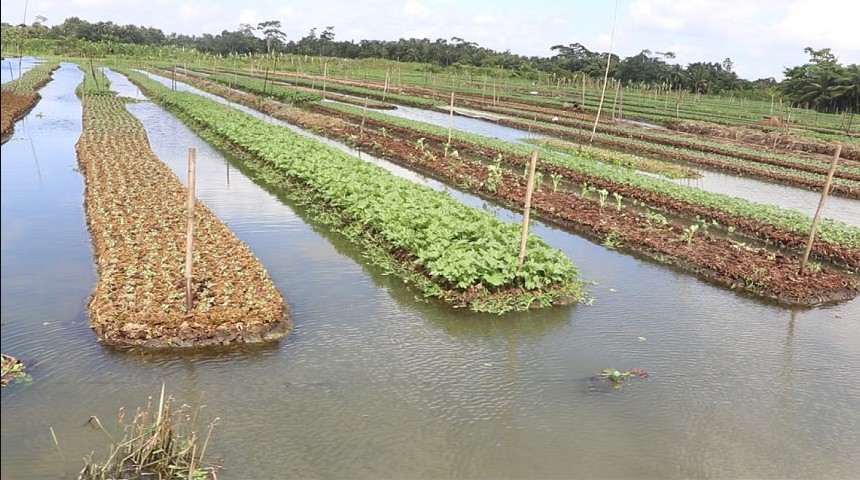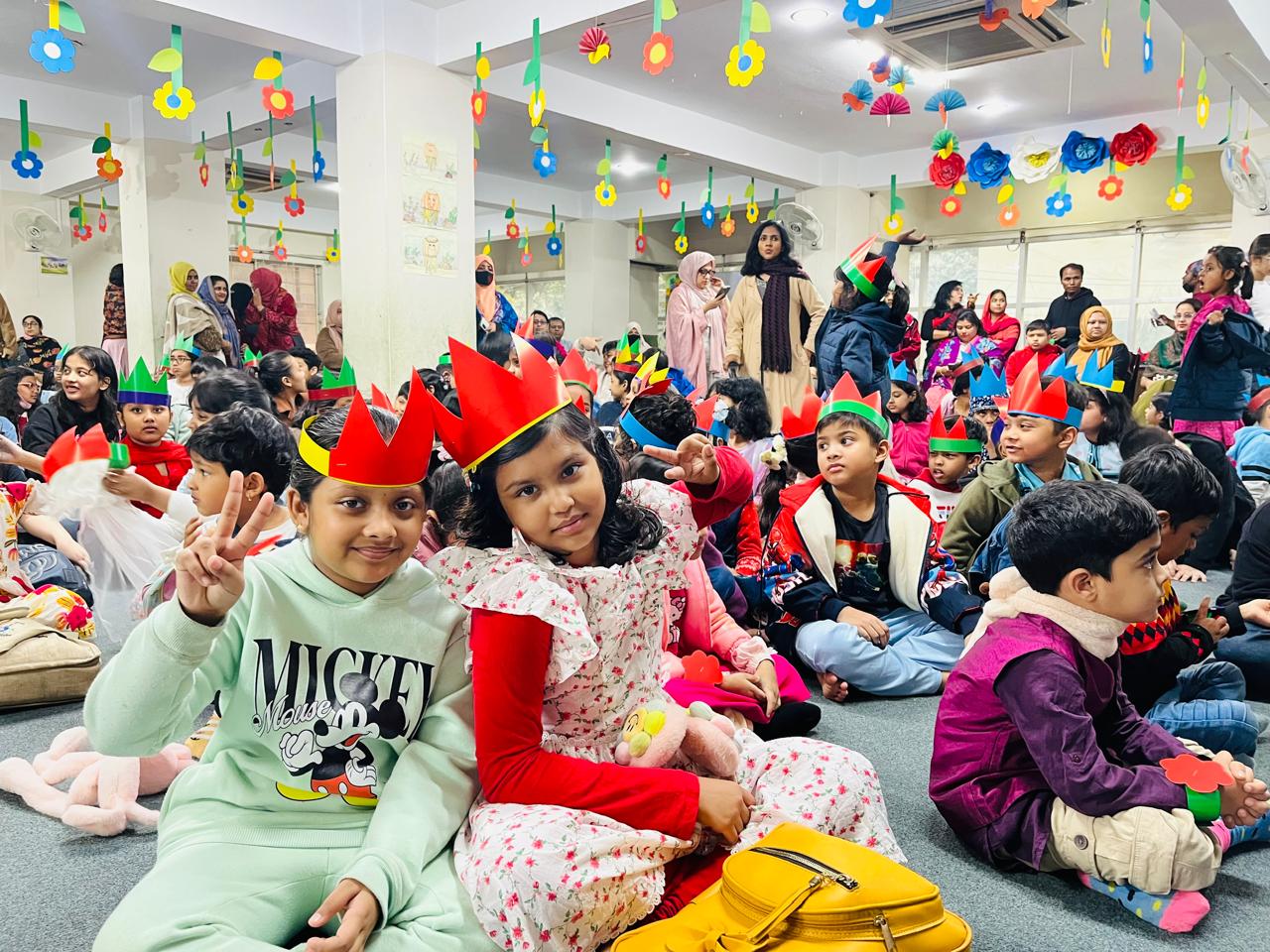In Pirojpur’s Nazirpur and Nesarabad upazilas, vast areas of marshlands remain flooded most of the time each year, making it difficult for landowners to cultivate any crops due to the high water levels.
As a result, these lands used to remain barren almost year-round until local people innovated an agricultural technique — floating seedbeds — to enable cultivation in these marshlands, especially in the Beel Dumuria area.
These seedbeds, made from water hyacinths, float on the marshland waters and allow crops to grow without being damaged by floodwaters.
Some locals earn a living by preparing these floating seedbeds, locally known as “dhap,” using water hyacinths collected from the marshes, and selling them to farmers.
Water hyacinth is an aquatic plant commonly found in the region’s marshes, ponds, canals, and other waterbodies. Its long, dense roots make it suitable for supporting the growth of saplings.
The seedbeds are constructed by wrapping three layers of water hyacinths around a bamboo frame to provide adequate thickness for saplings — usually seasonal vegetables — to grow.
Each seedbed is about 90 feet long and 5.25 feet wide, said Mohammad Shohag, who prepares the seedbeds on a contractual basis.
“To prepare each seedbed, we have to collect water hyacinths from an area of about 3,500 square feet. We begin making these seedbeds in mid-May, right before the water level rises during the monsoon, and continue for around four months,” he said.
“Before the season begins, local farmers place orders for dhap. We produce around 200 seedbeds in a season. Each costs about 6,000 takas to prepare, including 1,500 takas for water hyacinths, 3,500 takas for labour, and 1,000 takas for other expenses. We sell each seedbed for 8,000-9,000 takas,” Shohag added.
He also mentioned that they used to collect water hyacinths for free, but now they have to pay Tk 5,000–6,000 to landowners to collect them from each bigha of land, usually in the marshlands of Beel Dumuria, Padmadubi, Manoharpur, and other areas.
Alamgir Hossain, another contractual dhap maker, said they often have to work for hours in the open amid sweltering heat or incessant rain, as there is no shelter available in the marshlands.
Another worker, Mohammad Rasel, said they earn around Tk 800-850 after working round the clock for a day.
Even though the floating seedbed technique has been recognised by the UN’s Food and Agriculture Organization (FAO) as one of the Globally Important Agricultural Heritage Systems (GIAHS), the dhap makers said they receive no support for their work.
“Sometimes, people from different organisations come and talk to us, take photographs, and record videos of our work, and then leave. No one supports us, even though our work contributes to sustaining agriculture in this region,” said Shohag.
Contacted, Nazirpur Upazila Agriculture Officer Esratunnesa Easha said a project on growing vegetables on floating seedbeds ended two years ago. “Once any project is approved again, we will be able to help the farmers,” she said.
Report Courtesy: dailystar.net





